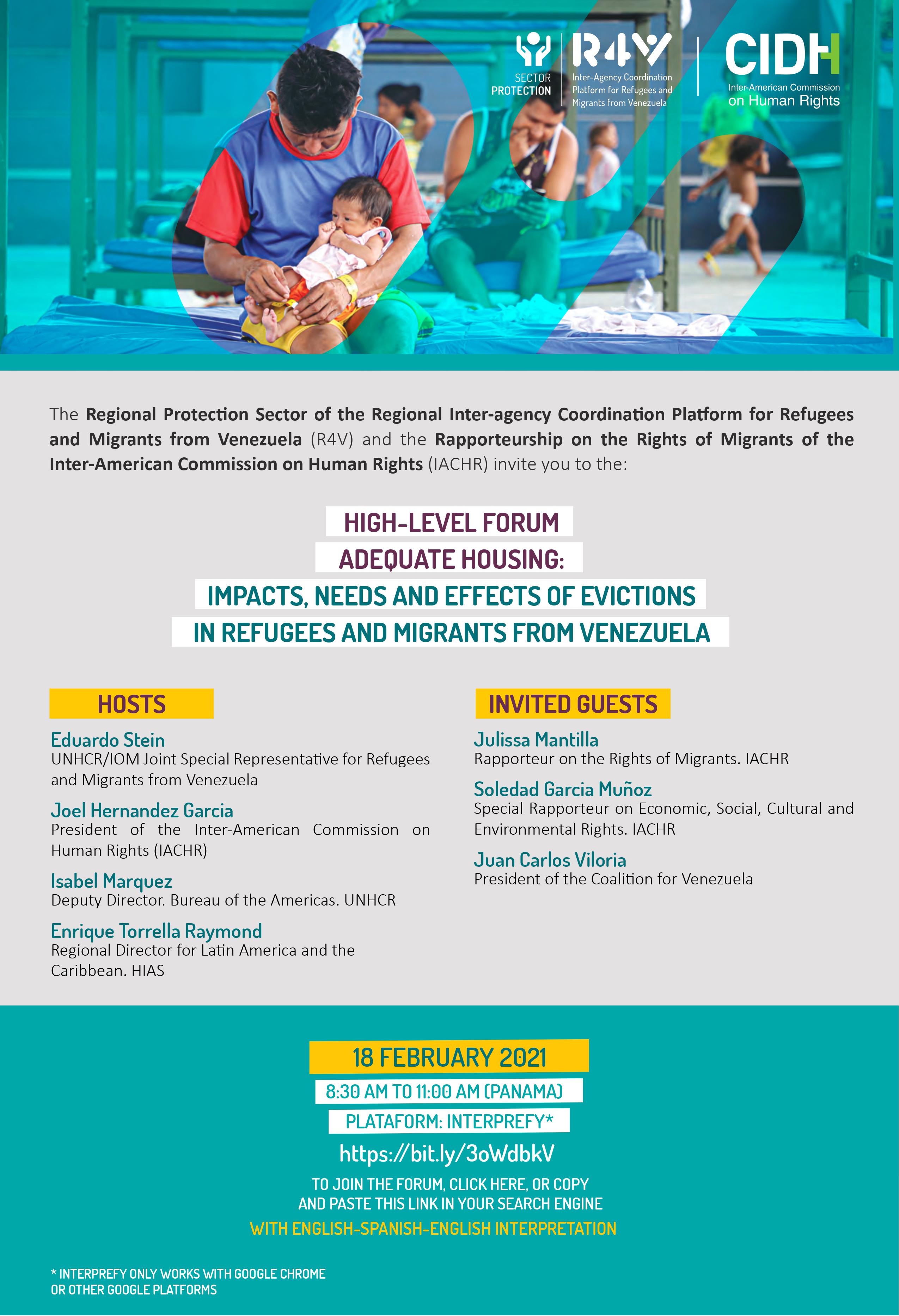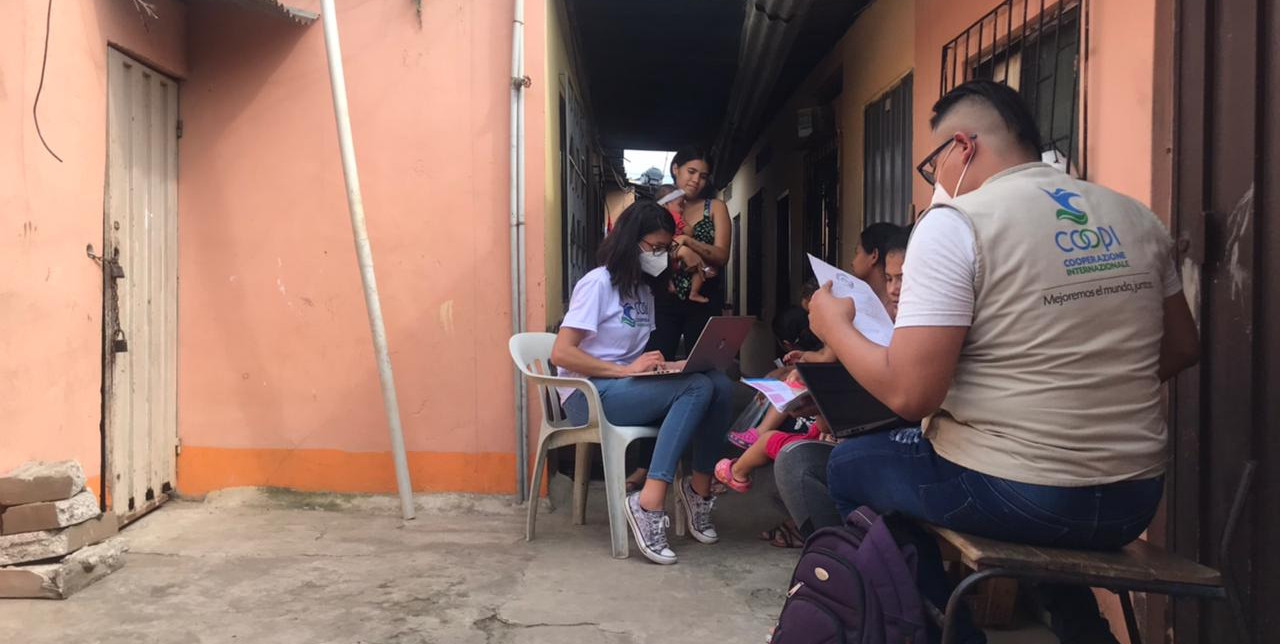01-03-2021 | di COOPI
Adequate housing for Venezuelan refugees and migrants. COOPI at the High Level Forum
COOPI – Cooperazione Internazionale was among the organisations invited as speakers to the High Level Forum on "Adequate Housing: Impacts, Needs and Effects of Evictions on Refugees and Migrants in Venezuela", organised by the Regional Protection Sector of the Regional Platform for Inter-Agency Coordination for Refugees and Migrants of Venezuela (R4V) and the Rapporteurship on Migrants of the Inter-American Commission on Human Rights (IACHR). COOPI's intervention was of great importance in the development of the Regional Toolkit for Eviction Risk Mitigation, presenting at this event the first regional survey on evictions of refugees and migrants from Venezuela.
In this regard, Nicola Momentè, COOPI Regional Coordinator for Latin America and the Caribbean, presented some key points based on the regional experience achieved within different projects, and whose main results show that there are still unmet needs in the following areas: water, sanitation and hygiene (WASH), housing and protection. In addition, during the forum, particular emphasis was placed on the need for migratory regularisation as an essential aspect for assisting the Venezuelan migrants.
Nicola Momentè, COOPI regional coordinator for Latin America and the Carribean
Similarly, COOPI stressed the relevance of the ongoing intervention to continue responding to the problem of evictions, highlighted through the diagnosis collected in the project "Improving the conditions of habitability and infrastructure in the housing of the population in human mobility in Machala, Ecuador" funded by UNHCR. Thanks to it, two results were achieved: rent relief, following the increase in evictions due to the COVID-19 pandemic situation and limited access to means of subsistence; and the improvement of housing conditions and infrastructure to avoid street situations.
COOPI also identified the need to define housing as "habitability units" through a process of characterisation and targeting of the beneficiary population and through home visits. They are framed in three typologies:
- individual habitability unit, i.e. living space where only one family group lives;
- community housing units, i.e. housing space where several family groups live;
- neighbourhood habitability units, i.e. neighbourhoods inhabited by families in human mobility, with the presence of public spaces requiring adaptation.
Finally, among the main recommendations, COOPI regional coordinator for Latin America and the Caribbean concluded that there must be comprehensiveness during the intervention – for exemple through the implementation of livelihoods to generate income within households in a sustainable manner, the identification of good community practices with the aim of promoting social cohesion, the timely and dynamic targeting process, accompanied by multidimensional variables and an intersectional approach, fair negotiation with property owners, and the relocation of households in places where intervention is difficult.
The aim of this forum was to increase the visibility of eviction risks in the region, prioritising special protection groups, in order to advocate with state authorities, the international community and donors on the importance of including refugees and migrants in national protection systems, in particular the right to adequate and decent housing as a key means to facilitate the local integration of refugees and migrants from Venezuela.





 Ecuador
Ecuador
